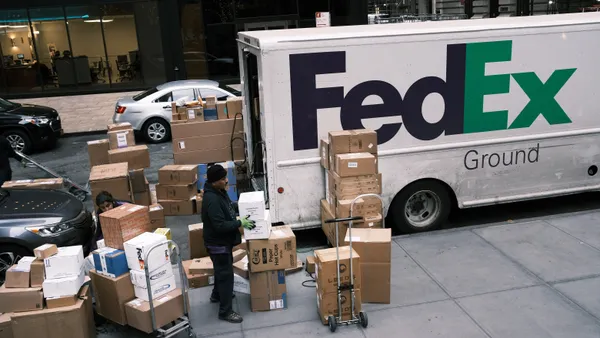Choosing the right logistics partner can have a significant impact on the success of your business. By choosing the right logistics partner, companies can improve the reliability of their supply chain; ensure the smooth, safe and efficient movement of your goods; reduce transportation, storage and handling costs; and enhance customer satisfaction.
However, if a logistics provider is not a good fit, it can lead to increased costs, delayed and damaged shipments and other issues harming the reputation of the company and negatively impacting their bottom line. Therefore, it is important to conduct a thorough evaluation of potential logistics partners to ensure that they have the experience, capabilities, and commitment to quality service that you require.
Here are five key factors to consider when picking a good logistics partner:
-
Experience and Expertise: When choosing a logistics partner, it's important to find one with experience in your specific industry or type of business. For example, if you run an ecommerce business, you want a logistics partner that has experience in order fulfillment and returns management. If you're dealing with hazardous materials, you'll want to find a partner that has experience handling and possibly even storing those kinds of shipments. A good logistics partner should have a proven track record of success and be able to demonstrate their expertise in the areas that matter to you. As everyone knows, “One size doesn’t fit all.”
-
Technology: Logistics technology has come a long way from when drivers used to radio their updates to dispatchers, and choosing a partner with strong technological capabilities can give you a significant advantage. Look for a logistics partner that has a robust transportation management system (TMS) and warehouse management system (WMS), as well as the ability to provide real-time tracking and visibility. A good logistics partner should also be able to integrate with your own systems and provide access to data and analytics to help you make informed decisions. Additionally, your ideal partner should utilize their technological capabilities to ensure a high level of safety for the cargo and drivers transporting it. With tractor and trailer tracking, sensors for ensuring safe driving on the road and many others that produce data on everything from fuel consumption to hours of service, your logistics partner should fit your safety profile to ensure operations run safely and smoothly.
-
Customer Service: The quality of customer service can make or break your logistics partnership. A good logistics partner should be responsive and easy to communicate with. They should be proactive in identifying issues and finding solutions and they should be willing to work with you to develop a customized solution that meets your unique needs. Last, but certainly not least, they should also be transparent and provide you with regular updates on the status of your shipments.
-
Collaborative Partnership: A good logistics partner will be just that – a partner, not a transaction or an occasional email. This kind of partnership will result in more efficient logistics services, such as delivery times that fit your business needs and better communication. Additionally, collaboration can lead to cost savings through optimized inventory management and transportation methods. For the logistics partner, collaboration can result in better understanding of your needs and requirements, leading to improved service offerings and increased customer satisfaction.
-
Pricing: Pricing is an important consideration when choosing a logistics partner, but it shouldn't be the only factor. A good logistics partner should be transparent and provide clear pricing that reflects the services you need. They should also be willing to work with you to find ways to optimize your logistics operations and reduce costs where possible. Additionally, your logistics partner will be dependable during times when the spot market is volatile and resist the urge to increase pricing because market demands it. Finally, it's important to balance cost considerations with the factors discussed above to ensure your logistics partner can deliver the quality of service you need at the right price.
With many factors to consider, the most important one is defining what you need in a logistics partner. From there, successful companies will be able to vet partnerships on the criteria above – and more – in order to find their perfect solution.










